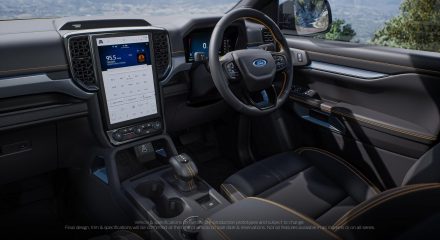Festive road trip – 13 things you must check on your car

With thousands of South Africans taking to the road this holiday season, and vehicle faults still being a causal factor in too many accidents, it’s vital for motorists to thoroughly check their vehicles before embarking on a road trip.
“It’s essential to perform a multi-check on your vehicle – or to have it performed by a professional – to identify potential hazards, and prevent costly additional damage before it happens, before you leave”, explains Anneli Retief, Head of Dialdirect.
“Things like worn brakes, shocks and wheel bearings, a damaged steering arm, a corroded mounting or loose linkage, if left unattended, could cause anything from an inconvenience to a major accident. Suspicious noises or vibrations coming from the engine, steering, transmission, wheels, brakes or any other system are definite red flags and it’s essential to have it evaluated by a qualified, reputable professional.”
The good thing is that you can perform many of these checks yourself. Dialdirect highlights these key items on the DIY vehicle checklist:
Lights and electrical system:
- Ensure that all bulbs on your vehicle are in working order to ensure that you can see, be seen and heard and clearly indicate your intentions.
- Make sure that headlamps are adjusted correctly – ensuring that light beams offer adequate viewing distance, but without being adjusted too far upwards, causing visibility problems for oncoming motorists.
- Check all instruments to make sure that they give correct readings of speed, fluid levels etc
- Check controls and switches, like those for lights, wipers, mirrors, defoggers etc.
Windows and wipers:
- Check to make sure that all windows are in a good condition and that any cracks or chips are repaired.
- A damaged windscreen not only reduces visibility, but also limits the windscreen’s ability to protect you in adverse conditions or in an accident.
- Make sure that wiper blades are performing well and make a clean sweep every time.
Wheels and tyres:
- Ensure that all the wheels are securely fastened.
- Ensure that each tyre has adequate tread. The South African legal limit is 1mm of tread, but anything below 3mm limits the tyre’s ability to function effectively.
- Check to see if your vehicle’s tyres are wearing evenly. Uneven wear may indicate a worn steering or suspension component, an over or under inflated tyre or bad wheel alignment / -balancing – things that could see the tyre failing prematurely.
- Make sure that your vehicle is equipped with a spare wheel in good condition, that you have the correct jack and other tools to remove and replace a damaged wheel and tyre.
Brakes:
- Check your vehicle’s brake fluid level and top it up if necessary.
- Check that the handbrake is working optimally.
- Ensure that all brake discs, drums and pads are in good condition; performing well and wearing evenly. Perform an emergency stop test to make double sure.
- Any uneven wear, strange noises or vibrations from the braking system should be investigated and fixed.
Suspension:
- Make sure that your vehicle’s shock absorbers and other suspension systems are keeping the tyres firmly on the ground.
- If your vehicle’s ride quality is harder or softer than it normally is – if the ride feels bumpy, if the vehicle rolls a lot when turning into corners and needs a longer distance to stop, or the grip on the road just isn’t what it used to be – then worn or damaged suspension parts like shocks or struts may need to be replaced.
Battery:
- Test your vehicle’s battery to make sure that it’s delivering the correct charge. Most batteries are maintenance free, but some require maintenance and may need battery water to be topped up.
- Have the alternator checked to make sure that it keeps the battery charged.
Belts and chains:
- Check to make sure that all belts and chains connected to the cam, alternator, fan and other components are in a good condition. Broken belts and chains can cause major engine damage.
Cooling system:
- Make sure that your vehicle’s cooling system – especially the radiator and water pump – is functioning correctly.
- Also ensure that the radiator cap seals properly and that the coolant fluid is clean and topped up to the correct level.
Filters and fluids:
- Make sure that all major filters – oil, air and fuel filters – are clean and functioning well.
- When you change the oil filter, make sure that you drain all old oil from your vehicle and replace it with new oil that matches the vehicle manufacturer’s specifications.
- Make sure that all fluids are at their recommended levels.
- Inspect all oil, air and fuel systems (including hoses and pipes) for leaks and fix them before leaving on your journey.
- Make sure that all fuel and oil caps are securely fastened.
Exhaust system:
- Give the exhaust system a good once over to check for any leaks.
- A damaged exhaust system won’t only cause vehicle performance- and fuel consumption issues, but also poses a serious health risk.
Body panels, mountings and accessories:
- Make sure that all body panels, mountings and accessories – including tow bars and the trailers etc. attached to them, are properly fastened and secured. The same applies to any load your vehicle may be carrying.
- Check all catches, latches and hinges to make sure that they are secure and functioning correctly
- Check for damage or rust that could compromise the vehicle’s structural integrity
- Make sure that your vehicle isn’t overloaded.
Safety/warning equipment:
- Check seatbelts and clips, as well as airbag settings (in some vehicles certain airbags can be disabled).
- Be sure to have a reflective triangle or flashlight handy to warn oncoming motorists when your car has broken down.
- Many drivers rely on their vehicles’ emergency indicators only, but remember that these may not be visible under certain conditions or may not work in the case of an electrical fault/battery trouble.
Insurance:
- Ensure that you have adequate car insurance in place, and all support and emergency numbers at hand.
“These checks will go a long way in avoiding problems en route to your holiday and allow you to have a relaxing journey in the knowledge that your car is performing at its best and safest,” Retief concludes, “Still, it’s a good idea to have comprehensive insurance cover in place in case things do go awry.”
Picture: Pexels







